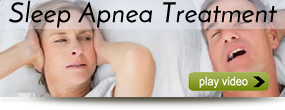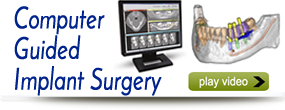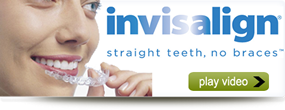GRINDING OR CLENCHING YOUR teeth is a pretty normal thing to do when you’re annoyed or stressed, and that’s nothing to worry about. However, if you grind your teeth on a more regular basis, whether asleep or awake, it can become a serious problem. This kind of chronic teeth-grinding is known as bruxism.
Why Does Bruxism Happen?
Sleep bruxism, also called nocturnal bruxism, is sometimes the side-effect of sleep apnea or snoring, while awake bruxism (diurnal bruxism) can be a side-effect of stress. However, not everyone with bruxism is dealing with a sleep disorder or stress, and everyone with a sleep disorder or a lot of stress in their lives will have bruxism. Improperly aligned teeth can also cause bruxism.
Bruxism Symptoms
Treatment for bruxism can sometimes be tricky because there isn’t a single clear cause, so the focus tends to be on reducing symptoms and minimizing the damage. You might not be consciously aware of a teeth-grinding habit, but if you experience at least some of the following symptoms, it could be because of bruxism:
- Sore jaw (with sleep bruxism, your jaw will be most sore in the morning, whereas with awake bruxism, it’ll be most sore in the evening)
- Frequent headaches from the constant strain
- Overdeveloped jaw muscles (because you’re giving them a major workout!)
- Shifting teeth
- Flattened chewing surfaces of teeth
- Exposed dentin and increased tooth sensitivity
- Chipped, cracked, or split teeth
- Tooth loss
Bruxism Treatment
There are a variety of treatments or approaches to either reduce the grinding or the damage it causes, depending on the type of bruxism you have.
Behavioral Therapy
You can become more aware of your clenching/grinding habits with behavioral therapy or habit-reversal techniques and consciously work to stop. Because it’s much harder to control what your jaw muscles do in your sleep, this option tends to work better for awake bruxism.
Relaxation
Relaxation techniques such as yoga, deep breathing exercises, massages, warm baths, calming music, and a full night’s sleep can help you de-stress and stop grinding if your bruxism is stress-related.
Prescribed Medication
Medicine is rarely used to treat bruxism, especially if other treatments are helping, but muscle relaxant medication prescribed by your doctor might help you unclench while you sleep.
We Can Help You Stop The Grind!
Schedule an appointment with us if you’re experiencing any of the above symptoms. It may be due to bruxism, and we can make a plan for how to address it. You don’t want to leave it untreated until it gets to the point where it’s damaging your teeth.










